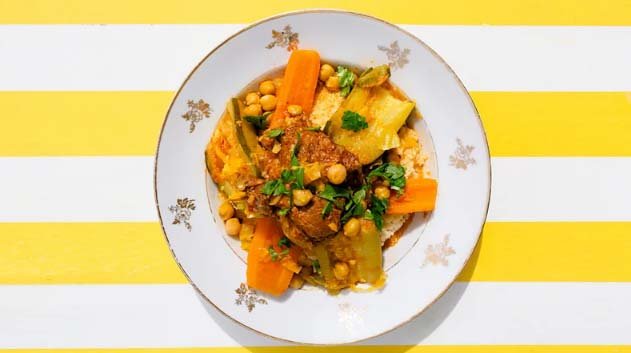
In Marseille, France’s most diverse city, a new wave of restaurants is redefining fine dining by blending haute cuisine with community solidarity.
Behind the ornate facade of Marseille restaurant Le République, lunch service is in full swing. Smoked mullet with sea fennel butter arrives as a starter, invoking the salty history of France’s second city. Hay-smoked cheese with rice flour follows, singing with flavour from the surrounding Provençal countryside. Tourists and locals savour organic ingredients prepared by Michelin-starred chef Sébastien Richard.
But Le République is a gourmet restaurant with a few big differences. First, the staff include a recently released prisoner. Second, around 40% of diners will pay just €1 for their three-course feast. And, finally, several diners have never set foot inside a restaurant before.
Le République is a restaurant solidaire – one of around 10 in Marseille – run as a social enterprise in aid of community solidarity. Other examples include L’Après M, a former McDonald’s taken over by its redundant staff when the franchise closed. The team purchased the premises and reopened it as a social enterprise, serving gourmet burgers created by a three-star Michelin chef served to the beat of Algerian rap, while operating a free food-delivery service of healthy takeout for people in need.
Marseille’s newest restaurant solidaire is Chaleur, which opened in June 2025. When I visited, it was packed with patrons enjoying chilled cucumber soup adorned with clams, figs and roasted pumpkin seeds. A blowout lunch with wine costs around €25 (£21; $29). But if a patron explains that they’re in a penurious position, they can enjoy the exact same menu for a tarif suspend – a “suspended rate” – of just €8 (£6.90; $9.29). Across Marseille, prices vary by philosophy. Some, like Le République, partner with charities to subsidise €1 meals, while others, like Chaleur, operate on trust.
Chaleur’s popularity begs an obvious question: with food this tasty, why not make a profit?
“Benevolence is a selfish way of saying that I want to be fulfilled in what I do,” says Chaleur co-founder Raphaël Raynard. “What enriches us is knowing our work is contributing to creating connections and helping people.” The team regularly serves espressos to homeless neighbours and recently donated 300 meals to a workers’ strike.
Chaleur’s co-founder Nausicaa Roux believes Marseille’s status as a “lighthouse city” is key to understanding the popularity of restaurants solidaires. Around 2,600 years of migration – including Greeks settlers in classical times to Iberian Jews fleeing the Spanish Inquisition and Armenians in the 20th Century – has made Marseille one of France’s most diverse and religiously tolerant cities.
“As a result, there’s a real way of living together that I don’t think exists in Paris or London,” Roux said. “Folks feel duty bound to help the one in five Marseillais who are born abroad. “There is an openness not found in other cities in France.”
These emigres didn’t arrive empty handed. They carried ingredients like orange blossom water from the Middle East, which is used to make Marseille’s iconic navette biscuits. Dates entered Europe via the Vieux Port, the city’s ancient harbour, and probably tomatoes and bananas too. The dynamic city dialect includes words in Amazigh, Occitan and Italian, with phrases blending together like a linguistic bouillabaisse, the local fish stew made from imported saffron and regional seafood. Marseille is, quite literally, a global melting pot.
 Weekly Bangla Mirror | Bangla Mirror, Bangladeshi news in UK, bangla mirror news
Weekly Bangla Mirror | Bangla Mirror, Bangladeshi news in UK, bangla mirror news







